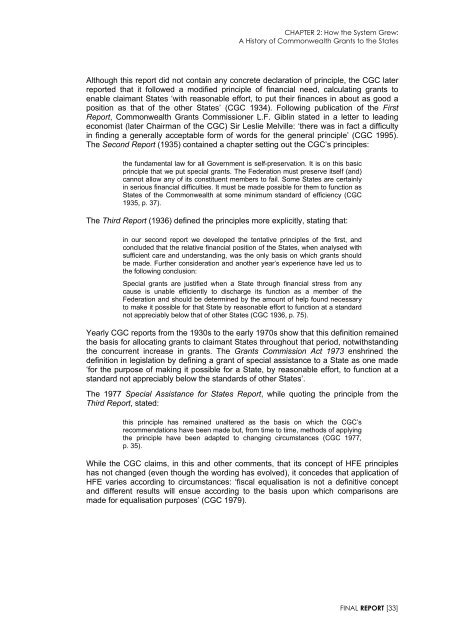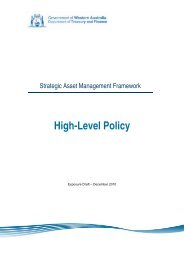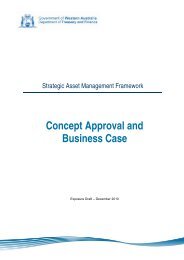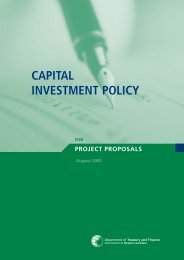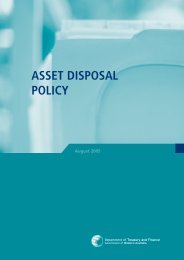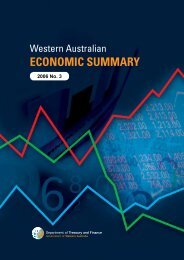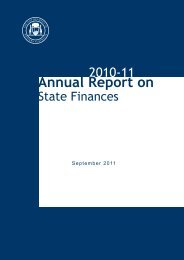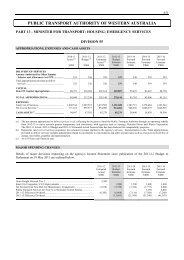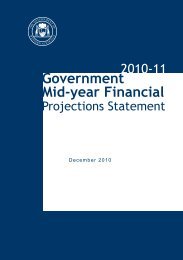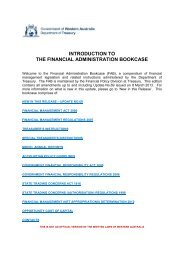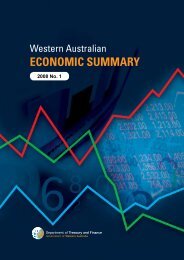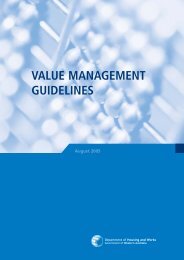Garnaut Fitzgerald Review of Commonwealth-State Funding
Garnaut Fitzgerald Review of Commonwealth-State Funding
Garnaut Fitzgerald Review of Commonwealth-State Funding
Create successful ePaper yourself
Turn your PDF publications into a flip-book with our unique Google optimized e-Paper software.
CHAPTER 2: How the System Grew:<br />
A History <strong>of</strong> <strong>Commonwealth</strong> Grants to the <strong>State</strong>s<br />
Although this report did not contain any concrete declaration <strong>of</strong> principle, the CGC later<br />
reported that it followed a modified principle <strong>of</strong> financial need, calculating grants to<br />
enable claimant <strong>State</strong>s ‘with reasonable effort, to put their finances in about as good a<br />
position as that <strong>of</strong> the other <strong>State</strong>s’ (CGC 1934). Following publication <strong>of</strong> the First<br />
Report, <strong>Commonwealth</strong> Grants Commissioner L.F. Giblin stated in a letter to leading<br />
economist (later Chairman <strong>of</strong> the CGC) Sir Leslie Melville: ‘there was in fact a difficulty<br />
in finding a generally acceptable form <strong>of</strong> words for the general principle’ (CGC 1995).<br />
The Second Report (1935) contained a chapter setting out the CGC’s principles:<br />
the fundamental law for all Government is self-preservation. It is on this basic<br />
principle that we put special grants. The Federation must preserve itself (and)<br />
cannot allow any <strong>of</strong> its constituent members to fail. Some <strong>State</strong>s are certainly<br />
in serious financial difficulties. It must be made possible for them to function as<br />
<strong>State</strong>s <strong>of</strong> the <strong>Commonwealth</strong> at some minimum standard <strong>of</strong> efficiency (CGC<br />
1935, p. 37).<br />
The Third Report (1936) defined the principles more explicitly, stating that:<br />
in our second report we developed the tentative principles <strong>of</strong> the first, and<br />
concluded that the relative financial position <strong>of</strong> the <strong>State</strong>s, when analysed with<br />
sufficient care and understanding, was the only basis on which grants should<br />
be made. Further consideration and another year’s experience have led us to<br />
the following conclusion:<br />
Special grants are justified when a <strong>State</strong> through financial stress from any<br />
cause is unable efficiently to discharge its function as a member <strong>of</strong> the<br />
Federation and should be determined by the amount <strong>of</strong> help found necessary<br />
to make it possible for that <strong>State</strong> by reasonable effort to function at a standard<br />
not appreciably below that <strong>of</strong> other <strong>State</strong>s (CGC 1936, p. 75).<br />
Yearly CGC reports from the 1930s to the early 1970s show that this definition remained<br />
the basis for allocating grants to claimant <strong>State</strong>s throughout that period, notwithstanding<br />
the concurrent increase in grants. The Grants Commission Act 1973 enshrined the<br />
definition in legislation by defining a grant <strong>of</strong> special assistance to a <strong>State</strong> as one made<br />
‘for the purpose <strong>of</strong> making it possible for a <strong>State</strong>, by reasonable effort, to function at a<br />
standard not appreciably below the standards <strong>of</strong> other <strong>State</strong>s’.<br />
The 1977 Special Assistance for <strong>State</strong>s Report, while quoting the principle from the<br />
Third Report, stated:<br />
this principle has remained unaltered as the basis on which the CGC’s<br />
recommendations have been made but, from time to time, methods <strong>of</strong> applying<br />
the principle have been adapted to changing circumstances (CGC 1977,<br />
p. 35).<br />
While the CGC claims, in this and other comments, that its concept <strong>of</strong> HFE principles<br />
has not changed (even though the wording has evolved), it concedes that application <strong>of</strong><br />
HFE varies according to circumstances: ‘fiscal equalisation is not a definitive concept<br />
and different results will ensue according to the basis upon which comparisons are<br />
made for equalisation purposes’ (CGC 1979).<br />
FINAL REPORT [33]


